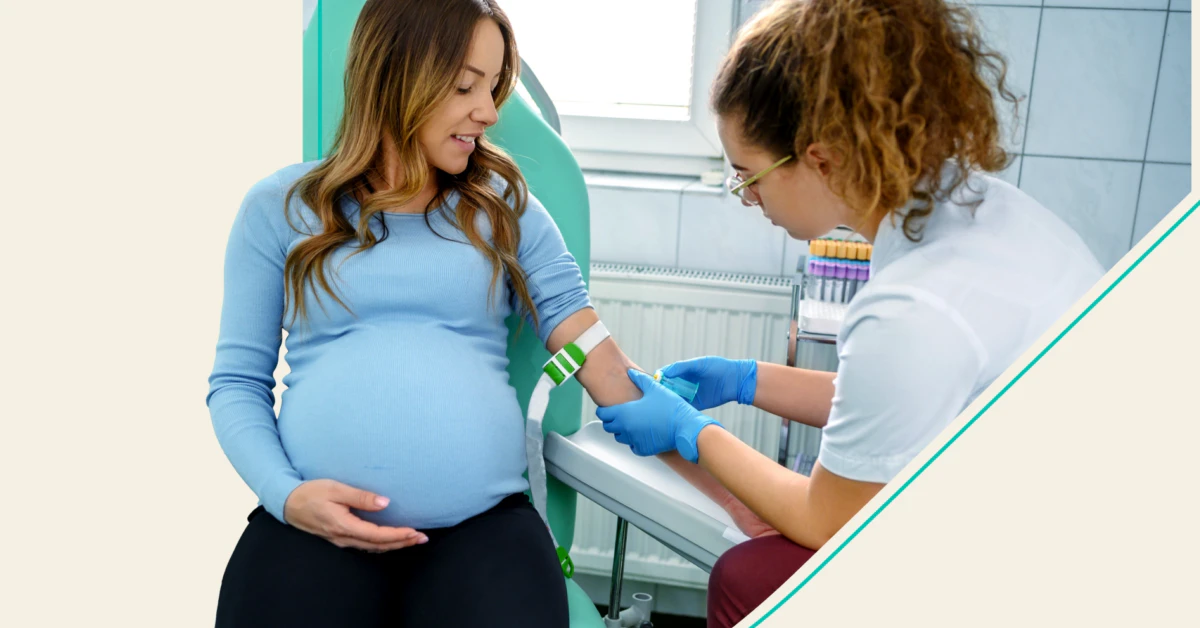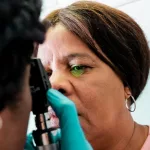Let’s be real for a second—nobody ever dreams of googling “genetic testing for autism before pregnancy” late at night, but here you are. Maybe you’re sitting with a mug of tea, scrolling through your phone, or maybe you’re nervously tapping your fingers on the kitchen counter, wondering about the future. It’s okay. This stuff is big, and honestly, it’s a lot to take in.
Here’s the thing: A lot of people think genetic testing is like flipping a light switch—you just take a blood test, voila, you get a neat answer. But (and this is a big but), the reality is way more complicated, a little messier, and, sometimes, even a bit hopeful. Let’s walk through this together, and I’ll do my best to make sense of it all—no jargon, no lectures, just honest conversation, like friends figuring things out over coffee.
I know there’s a lot of emotion tangled up in this topic—hope, fear, maybe even guilt (you don’t need that, by the way). So, let’s find some clarity. We’ll talk about what genetic screening for autism really means, what it can (and can’t) tell you, and how you can use this info to make the best choices for your family. Sound good? Let’s dive in.
So, What Is Genetic Testing for Autism Before Pregnancy?
Let’s start with the basics. “Genetic testing for autism before pregnancy” sounds super high-tech, right? Kind of like something out of a sci-fi movie. But here’s the honest truth: there isn’t a single “autism gene” you can just check off a list. Autism, or autism spectrum disorder (ASD), is influenced by a whole bunch of genes—plus, things in the environment can play a role too.
Genetic testing, in this context, usually means looking for specific changes (mutations) in genes that have been linked to autism in some people and families. Sometimes, these are rare gene variants, and sometimes, it’s about a combination of lots of tiny changes. But it’s never as clear-cut as “yes, your future child will be autistic” or “no way, you’re good to go.” I wish it were that simple!
The takeaway? If you’re thinking about genetic screening for autism before pregnancy, you’re mostly looking at probabilities—not guarantees. It’s like checking the weather forecast: helpful, but not a crystal ball.
Types of Genetic Screening: What Are Your Options?
Let’s break it down a bit further. There are a few main types of genetic tests that could be considered before pregnancy:
- Carrier Screening: This is where you and your partner get tested to see if you “carry” genes linked to certain conditions (like Fragile X syndrome, which can be associated with autism).
- Preimplantation Genetic Diagnosis (PGD): If you’re doing IVF, doctors can test embryos for certain genetic conditions before they’re implanted. But it’s limited to specific, known mutations—not the whole spectrum of autism risk.
- Expanded Genetic Panels: Some clinics offer panels that look for a wide range of genetic changes, but again, these can’t predict autism with certainty.
| Test Type | What It Checks | Can It Predict Autism? |
|---|---|---|
| Carrier Screening | Known gene variants (e.g., Fragile X) | No, only risk for some conditions |
| Preimplantation Genetic Diagnosis (PGD) | Specific mutations in embryos (IVF) | Only for known mutations |
| Expanded Panels | Many rare gene variants | Very limited; not comprehensive |
If you’re now thinking, “Wait, so there’s no blood test for autism gene?”—you’re right. Despite what you might read online, there’s no simple blood test that can tell you whether your future child will be autistic. Science isn’t there yet, and honestly, it may never be that black-and-white.
Can Autism Really Be Detected Before Pregnancy?
Here’s the million-dollar question, and I wish I could give you a tidy answer. The truth is: as of now, there’s no test that can predict autism in a future child with any certainty before pregnancy. Genetic screening can give you pieces of the puzzle, but the whole picture? Still out of reach.
Why? Well, autism is what scientists call “polygenic”—meaning, it involves lots and lots of genes, not just one. Plus, environmental factors (like what happens during pregnancy or even before conception) can play a role. It’s a little like trying to predict the plot of a movie from just the opening scene—possible, but not very accurate.
So, if you see websites promising a sure-fire “genetic test for autism” or a “blood test for autism gene,” take it with a huge grain of salt. Reliable clinics and genetic counselors will always be honest about these limitations.
What Tests Are Actually Available?
So what can you actually do if you’re planning a pregnancy and want to understand your risk? Here’s what’s on the table:
- Carrier screening for known genetic conditions related to autism, like Fragile X syndrome (talk to your doctor or a genetic counselor about this).
- If you have a family history of autism or related conditions, you might be offered more detailed genetic testing—but again, it’s about risk, not certainty.
- Consultation with a genetic counselor—these folks are superheroes. They can walk you through your family history, help you understand what testing can (and can’t) do, and support you emotionally along the way.
How Genetic Screening Works If You’re Planning a Pregnancy
- Talk to your doctor or a genetic counselor about your family history and concerns.
- Decide if you want (or need) carrier screening or other tests—it’s always optional.
- Get a blood or saliva sample taken at a clinic.
- Wait for results—usually a few weeks. (This part can feel like forever, I know!)
- Meet again to go over results, ask questions, and talk about next steps.
If you’re wondering what conditions carrier screening usually covers, check out this resource. It’s helpful, but remember, it’s not an autism prediction tool.
The Benefits and Risks of Genetic Testing for Autism Before Pregnancy
Let’s get honest about this. There are real reasons people seek out genetic screening for autism—and some real risks, too. It’s all about balance. You want answers, you want to plan, you want to do what’s best. But you should also know what you’re getting into.
Potential Benefits: Why Some Parents Consider It
- Early Awareness: For some, just having a clearer sense of risk can be a relief. It’s like turning on a light in a dark room—not everything is clear, but at least you’re not stumbling around.
- Access to Support: If you know there’s a higher risk for certain conditions, you can connect with resources, support groups, and specialists sooner.
- Emotional Preparation: Knowing what might be ahead can help you prepare mentally and emotionally. That’s huge for a lot of families.
I remember talking to a friend who went through carrier screening after her first child was diagnosed with autism. She told me, “It didn’t change my love for my kids, but it gave me time to process, to plan, to connect with other parents.” Sometimes, that’s the real gift—time and understanding.
Risks and Ethical Considerations: What You Should Know
- Uncertainty: Genetic testing is not a magic wand. It may leave you with more questions than answers. Sometimes, results are “variants of unknown significance”—which is science-speak for “we’re not sure what this means yet.”
- Emotional Stress: Waiting for results, or dealing with uncertainty, can be tough. It’s normal to feel anxious or overwhelmed.
- Privacy Concerns: Genetic data is sensitive stuff. Make sure you’re working with reputable providers who protect your information.
- Ethical Questions: Some people worry about the line between preparation and trying to “engineer” the perfect child. These are personal and sometimes really tough conversations to have—with yourself, your partner, maybe even your doctor.
Stories and Expert Insights
One parent I spoke to shared, “The hardest part was the not-knowing. But my counselor reminded me that every child is unique, no matter how many tests you do. That stuck with me.” Genetic counselors often say that these tests are tools—not fortune-tellers.
How Much Does Genetic Testing for Autism Cost?
Okay, let’s talk numbers. I won’t sugarcoat it—genetic testing for autism cost can vary a LOT, depending on what you’re testing for, where you get it done, and whether your insurance covers it.
- Carrier screening can range from a few hundred to over a thousand dollars, especially if you do an expanded panel.
- Preimplantation genetic diagnosis (with IVF) can add several thousand more to the bill.
- Some insurance plans cover carrier screening, especially if there’s a family history or you’re part of a group at higher risk.
- Other times, you might be paying out of pocket—so always ask before you commit!
It’s worth asking every provider up front about the costs, what’s included, and what happens if you need follow-up testing. Nobody likes surprise bills, especially when you’re already stressed.
Where to Get Genetic Testing for Autism
If you’re wondering where to get genetic testing for autism, start with your OB/GYN or primary care doctor—they can refer you to a reputable genetic counselor or clinic. University medical centers and large hospitals often have genetics departments. There are also some online services, but be careful: quality and privacy protections can vary.
Here’s a little checklist you might find handy when choosing a provider:
- Are they accredited and reputable?
- Do they offer counseling and support, not just test results?
- Will they protect your privacy and data?
- Do they explain the results in language you actually understand?
If you ever feel pressured, confused, or just not heard—trust your gut and keep looking for someone who will listen. You deserve care that feels safe and supportive.
Making an Informed Decision: Trusting Yourself and Getting Support
Here’s the real bottom line: genetic screening for autism before pregnancy is a very personal decision. There’s no right or wrong answer—just what’s right for you, your partner, and your family. And you never have to make this journey alone.
Genetic counselors are trained not just in science, but in empathy. They’ll walk with you through your options, help you make sense of the information, and support you in whatever you decide. Don’t be afraid to ask all the “dumb” questions—spoiler alert, there are no dumb questions here.
How to Talk to a Genetic Counselor
- Write down your questions and concerns ahead of time—don’t rely on memory when your brain is spinning.
- Ask about risks, benefits, and limitations of each test.
- Be honest about your hopes, fears, and what you’re looking for from testing.
- Ask for resources or support groups if you need more connection.
If you’re feeling overwhelmed by all the technical talk, it’s completely normal. Just remember: your story, your questions, and your hopes matter. And caring for yourself—emotionally and physically—is just as important as any test result.
Balancing Information and Emotion
It’s easy to get lost in the sea of information, statistics, and what-ifs. But at the end of the day, you’re not looking for perfection—you’re looking for understanding, for love, for a way forward.
Let yourself feel all the feelings. Reach out to friends, family, or online communities. Sometimes the most comforting words come from someone who’s walked in your shoes. And if you ever want to share your own story or ask a question, please do! Your experience could help someone else who’s feeling just as lost as you were.
Conclusion: You’re Not Alone on This Journey
So, here’s what I hope you take away: genetic testing for autism before pregnancy isn’t about finding certainty—it’s about gathering information, asking questions, and making choices that fit your life. There’s no test that can predict every outcome, but there is support, community, and hope.
If you’re considering genetic screening, know that you’re strong, brave, and not alone. Ask questions, trust your gut, lean on experts when you need them, and remember—whatever happens, love and acceptance are what matter most.
What do you think about all this? Have you had experiences with genetic counseling, or do you have questions that still keep you up at night? Share your thoughts, swap stories, and let’s keep the conversation going. We’re all learning together, and I’m cheering you on every step of the way.


















Leave a Reply
You must be logged in to post a comment.